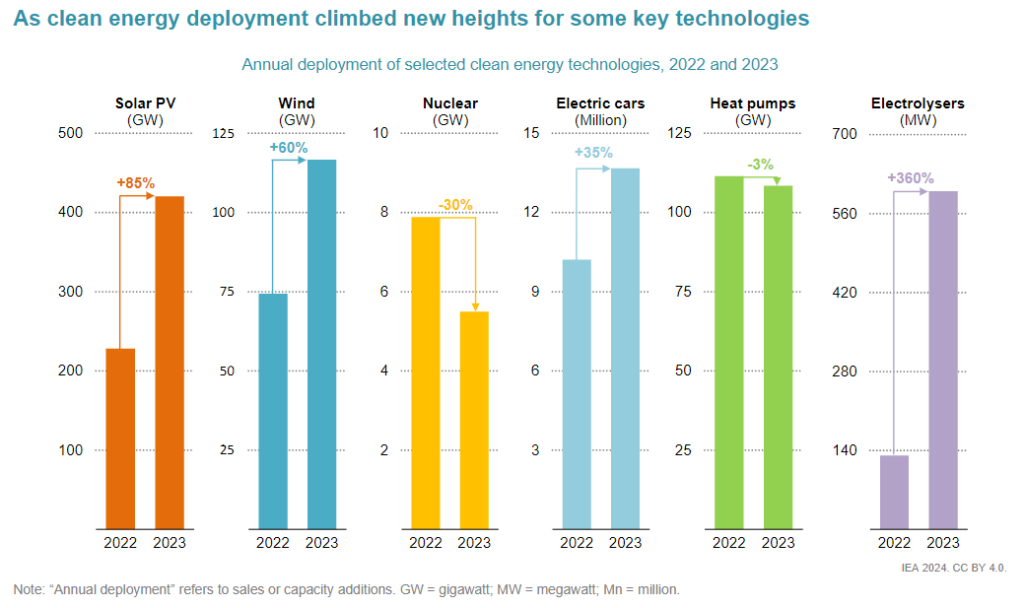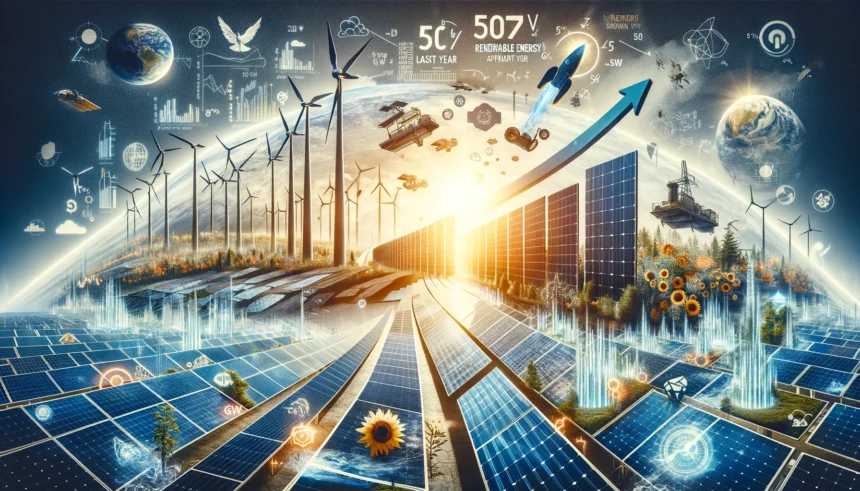Listen to the article now:
The landscape of renewable energy experienced an unprecedented boom in 2023, as the world saw a significant increase in the addition of clean energy sources to its energy systems. According to the latest report from the International Energy Agency (IEA), the Renewables 2023 report, the additional capacity of renewable electricity reached an astonishing 507 gigawatts (GW) last year. This marked a 50% increase compared to the figures from the previous year, showcasing a clear and robust commitment to transitioning towards more sustainable energy sources globally.
The surge in renewable energy capacity comes in the wake of the COP28 summit, where world leaders and environmental advocates called for a tripling of renewable energy capacity by the end of the decade. This ambitious goal aims to significantly decarbonize our energy systems and represents a critical step towards mitigating the effects of climate change and achieving global sustainability targets. The momentum gained from these discussions is expected to catalyze the fastest growth in renewable energy seen in the coming five years.

The report highlights that solar photovoltaic (PV) technology has been the frontrunner in this clean energy surge, accounting for a staggering three-quarters of the total global additions in renewable capacity. Solar capacity, in particular, has seen a record-breaking increase of 85% compared to other renewable sources, with solar PV capacity alone witnessing a monumental surge of over 80% from 2022 to 2023. This growth has shattered previous records, with more than 420 GW of solar PV capacity added to the global energy mix.
However, despite these significant strides towards a more sustainable energy future, the journey is not without its challenges. A notable concern highlighted by the IEA report is the lack of financing available to emerging and developing economies. This financial shortfall leads to an unequal distribution of clean energy resources across the globe, hindering the universal adoption of renewable technologies and potentially delaying progress towards global climate goals.
The report’s findings underscore the imperative need for increased investment and international cooperation to ensure that the benefits of renewable energy can be shared equitably worldwide. Only through a concerted global effort can we overcome these financial barriers and pave the way for a cleaner, greener future for all.
The year 2023 stands as a testament to the potential of renewable energy to revolutionize our energy systems and combat climate change. With solar energy leading the charge, the world is on a promising path towards achieving the ambitious goals set forth by international leaders and environmental advocates. However, the journey ahead requires persistent effort, significant investment, and global solidarity to ensure that renewable energy can reach every corner of the planet, driving us towards a sustainable and prosperous future.
















